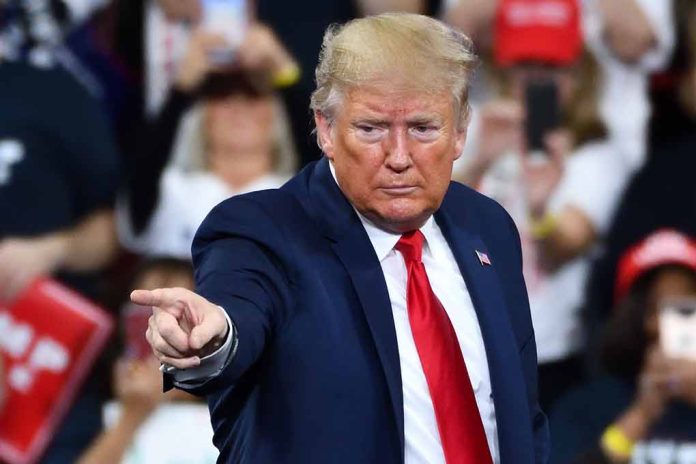
President Trump declares a national emergency at the southern border, designating drug cartels as foreign terrorist organizations in a move that could reshape U.S. national security policy.
Key Takeaways
- President Trump has declared a national emergency at the southern border, citing threats from cartels, gangs, and terrorists.
- The declaration allows for military deployment and construction of physical barriers along the border.
- Certain drug cartels and gangs, including MS-13 and Tren de Aragua, will be designated as foreign terrorist organizations (FTOs).
- This move unlocks new legal and military options for dealing with migrants and transnational criminal organizations.
- Experts warn of potential diplomatic complications and increased violence from cartels in response to these measures.
National Emergency Declaration and Its Implications
In a bold move to address what he describes as an “invasion” at the southern border, President Donald Trump has declared a national emergency. This declaration comes with far-reaching implications for U.S. national security policy and border control efforts. The proclamation cites multiple threats, including those from cartels, criminal gangs, terrorists, human traffickers, smugglers, and illicit narcotics.
The national emergency declaration allows for the deployment of armed forces to assist the Department of Homeland Security in controlling the border. It also authorizes the construction of additional physical barriers along the southern border. This move significantly expands the government’s capabilities to address what the administration views as a critical national security threat.
J/20th, 2021: Biden terminates the U.S. national border emergency declaration
J/20th, 2025: Trump signs a new one pic.twitter.com/nugk8DgxeX
— End Wokeness (@EndWokeness) January 21, 2025
Terrorist Designations and Enhanced Legal Powers
A key component of the new policy is the designation of certain drug cartels and gangs as foreign terrorist organizations (FTOs). Specifically, the Venezuela-based gang Tren de Aragua and El Salvador-based MS-13 are set to receive this classification. This designation unlocks new authorities for dealing with these groups and their associates.
This expansion of legal powers allows the Justice Department to pursue individuals suspected of providing “material support” to these groups. It also enables the use of military intelligence and capabilities for deeper surveillance of these organizations, potentially reshaping the landscape of border security and law enforcement operations.
Military Involvement and Border Security Measures
The declaration directs the Secretary of Defense to deploy military personnel and resources to support border control efforts. A new homeland security task force will be established to carry out related orders and actions within the U.S. The defense secretary will determine the shape and scope of any military action, potentially leading to a significant increase in military presence along the southern border.
Currently, approximately 2,500 troops are serving at the southern border under a previous authorization. However, past deployments have been criticized for lacking military training value and potentially affecting overall military readiness. The new declaration aims to prioritize border security and the safety of personnel, with policies and strategies to be revised accordingly.
Potential Risks and International Implications
While the administration views these measures as necessary for national security, some experts warn of potential risks and complications. The designation of cartels as terrorist organizations could lead to more brutal tactics by these groups and strain international relations, particularly with neighboring countries.
The idea of designating drug cartels as terrorist organizations has been debated in Washington for years, with mixed opinions on its benefits and potential complications. Critics argue that such designations could escalate violence and complicate diplomatic efforts in the region. The administration, however, maintains that these measures are crucial for addressing what they perceive as an ongoing crisis at the southern border.
Sources:
Border declaration, terrorist designations unlock new options—and new risks
DECLARING A NATIONAL EMERGENCY AT THE SOUTHERN BORDER OF THE UNITED STATES







